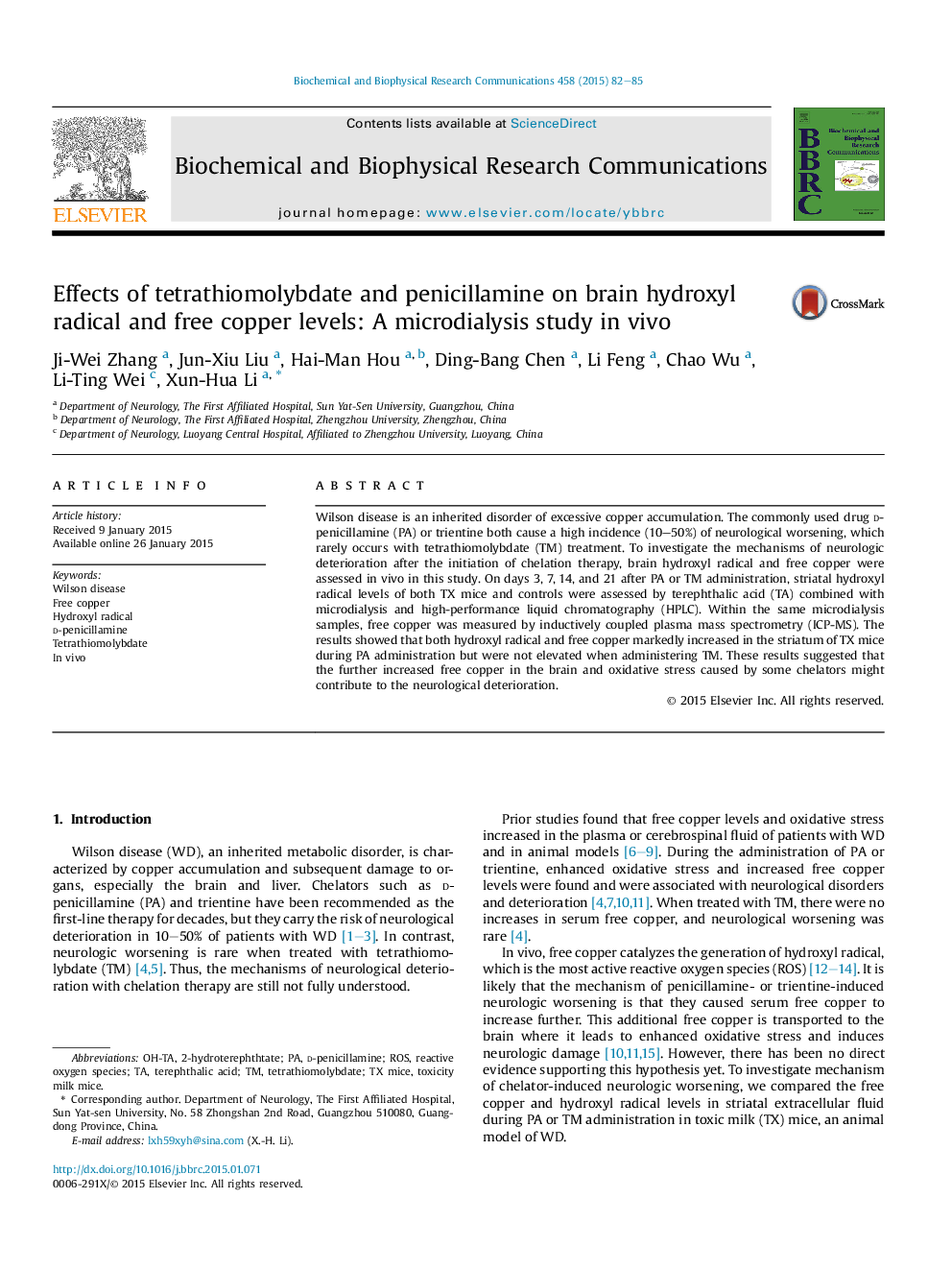| Article ID | Journal | Published Year | Pages | File Type |
|---|---|---|---|---|
| 10752427 | Biochemical and Biophysical Research Communications | 2015 | 4 Pages |
Abstract
Wilson disease is an inherited disorder of excessive copper accumulation. The commonly used drug d-penicillamine (PA) or trientine both cause a high incidence (10-50%) of neurological worsening, which rarely occurs with tetrathiomolybdate (TM) treatment. To investigate the mechanisms of neurologic deterioration after the initiation of chelation therapy, brain hydroxyl radical and free copper were assessed in vivo in this study. On days 3, 7, 14, and 21 after PA or TM administration, striatal hydroxyl radical levels of both TX mice and controls were assessed by terephthalic acid (TA) combined with microdialysis and high-performance liquid chromatography (HPLC). Within the same microdialysis samples, free copper was measured by inductively coupled plasma mass spectrometry (ICP-MS). The results showed that both hydroxyl radical and free copper markedly increased in the striatum of TX mice during PA administration but were not elevated when administering TM. These results suggested that the further increased free copper in the brain and oxidative stress caused by some chelators might contribute to the neurological deterioration.
Keywords
Related Topics
Life Sciences
Biochemistry, Genetics and Molecular Biology
Biochemistry
Authors
Ji-Wei Zhang, Jun-Xiu Liu, Hai-Man Hou, Ding-Bang Chen, Li Feng, Chao Wu, Li-Ting Wei, Xun-Hua Li,
